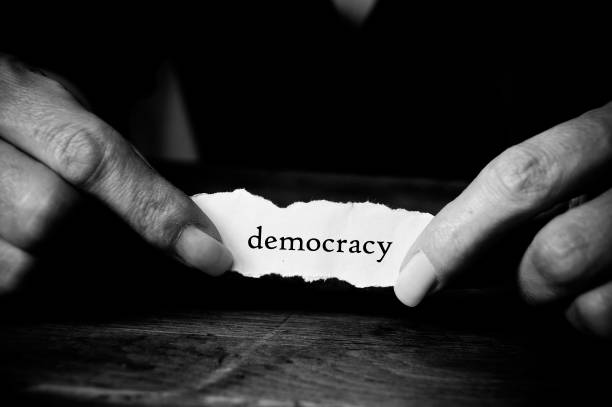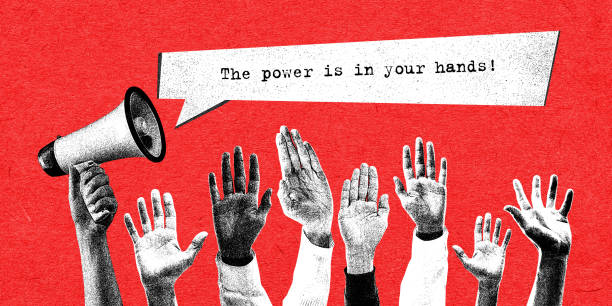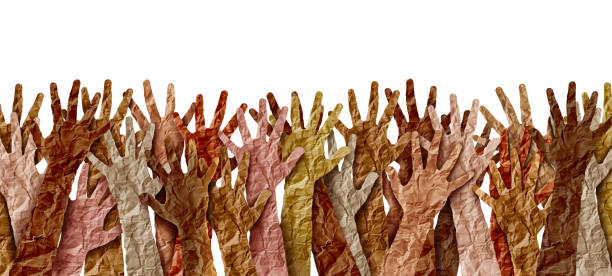
Himethma Perera
“Constitutional Pillars of Democracy: How Core Values Shape Governance and Liberty”
By Himethma Perera

“There is no happiness without liberty, no liberty without self-government, no self-government without constitutionalism, no constitutionalism without morality and none of these great goods without stability and order.”
-Clinton Rossiter-
This quate reminds us that constitutionalism is essential in a democratic state. According to my point of view constitutionalism is a combination of certain constitutional values. These values upheld a state regardless of the type of the constitution of the country. With reference to this statement, we can divide the title into two parts mainly and in the first part we will check out the relationship between these values and democratic governance. As the second part there a an analyze of the constitutional values which enshrined in the 1978 constitution of Sri Lanka.
Now, we will go through some key constitutional values and their role in democratic governance. A democratic government means a government which lays supreme power on people. On the authority of Barnett, limitation of power (limited government), separation of powers (checks and balances), and responsible and accountable government are key features of constitutionalism while Henkin thinks Rule of law, separation of powers, popular sovereignty and protection of fundamental rights are also key features of it. First, we will talk about rule of law (ROL). Rule of Law can be defined as the backbone of democratic governance. This means everyone is equally before the law regardless of their power and position. Simply Rule of Law can be constituted as the supremacy of law.
A.V Dicey is the main scholar who talked about Rule of Law deeply. According to his point of view it can be explained mainly under three topics. They are;
Germany can be taken as a practical example for this as it a democratic constitutional state, that laws apply equally to every person. To prove it clearly the section 28(1) of the German constitution says that ‘The constitutional order in the Länder must conform to the principles of a republican, democratic and social state governed by the rule of law, within the meaning of this Basic Law.’
Second value is separation of power. Through the concept, giving extreme power to single authority is prohibited. Under this, power is divided between three pillars which are executive, legislature and judiciary. It encourages checks and balances which are essential to a democratic government. USA, France, and Germany use these concepts as democratic governments while China and Hong Kong refuse to use this. That can be taken as practical examples for this. In the case of United States v Nixon (1974) 418 US 683, it is clearly mentioned that president is also equal under the law which depicts that this separation has allowed for effective checks on presidential power too.
Protecting fundamental rights of individuals is also took a crucial role in functioning democracy as it authorizes citizens and provides ground for dissent and opposition. According to the ideology of Thomas Paine, rights such as freedom from expression, religion and freedom from persecution are inherent and must be protected to ensure democracy. I think constitution of South Africa includes a powerful bill of rights. In the landmark case Minister of Home Affaires v Fourie (2006) which was about right to same sex marriage, courts played an active role by applying these laws. It depicts democratic inclusiveness and progressiveness.
Popular sovereignty is also a major constitutional feature which goes well with democracy. In here all political power has been given to the people. A government is established by the will of the people, and all these things are done for the benefit of the people. Scholar Althusius says that “Sovereignty is in the people” in his work ‘The politics in 1603’. In my opinion both these concepts are mutually related as a democratic government is a government that gives sovereignty over the people. As a comparative in sight the constitution of State Montana can be taken as article 2(1) of Declaration of Rights mentions that “All political power is vested in and derived from the people. All government of right originates with the people, is founded upon their will only, and is instituted”.
After reading all of above I would like to say that if healthy political system is a mother, constitutional values and democratic governance would be her children. Because I think all the facts, examples and arguments ensure that there is a strong relationship between both of them.
When we take a look at the constitutional history of Sri Lanka, from 1833-1946 country didn’t have a stable constitution. But in 1947 Solebury constitution was introduced under the Westminster style. In 1972 Sri Lanka’s first national constitution was introduced. Then in 1978 the second republic constitution was drafted. This has been amended for twenty times.
Having a constitution is not just enough to maintain constitutionalism since constitutional values like rule of law, separation pf powers, protecting fundamental rights and people’s sovereignty are also connected with it. So, I believe that these constitutional values should be enshrined in a constitution to keep constitutionalism. I’m going to check if it is correct or not through the 1978 constitution of Sri Lanka.
Rule of law is a major constitutional value that means every person is equal under the eyes of law. In the constitution of 1978 enshrines this concept via article 12 and 13(6) by itself. It says that A certain act done by a person was not a crime according to the existing law brought later, but according to the law of that time it was not a crime, so he should not be punished. Sepala Ekanayake v Attorney General (1988) is the best example for this. Also, the recent cases of Dissanayake Mudiyanselage Sumanaweera Banda v Sri Lanka, Wasudewa Nanayakkara v Choksi33, Sugathapala Mendis v Chandrika Bandaranayake and imprisonments of former minister Ranjan Ramanayake are best examples of applying rule of law in Sri Lankan legal system.
Human rights are a main part of human dignity. Protecting them is a major constitutional value as the 1978 constitution dedicated a whole chapter regarding protection of human rights.
In chapter 3 from article 10-14 it mentions fundamental rights such as freedom of thought, conscience, religious, speech, assembly, association etc. while articles 17 and 126 explain what a person could do if his fundamental rights got violated and supreme court has power to handle that case. Sriyani Silva v Iddamalgoda (2003), Nallaratnam Singarasa v Attorney General, Ajith C. Perera v Minister of Social Services and Social welfare and Others (2009), Fernando v Sri Lanaka Broadcasting Corporation (1996)41 and Amal Sudath Silva v Kodithuwakku (1987) are few landmark cases regarding to the protection of fundamental rights in Sri Lanka.
The 1978 constitution mentions that sovereignty is lying on the people, and it is an absolute right. Furthermore, the article 3 and says the citizens have to choose the government they prefer by their franchise. The recent case Ajith C. Perera v Minister of Social Services and Social welfare and Others (2009) is a perfect example which talked about sovereignty of the people.
Separation of powers is another value that is enshrined in the 1978 constitution. According to this concept power is divided between executive, legislature and judiciary. Article 4 of the constitution depicts it wisely. Dissanayake Mudiyanselage Sumanaweera Banda v Sri Lanka, Wasudewa Nanayakkara v Choksi, Sugathapala Mendis v Chandrika Bandaranayake are some cases which show off the role of judiciary under the separation powers.
Here I have talked about some of the major constitutional values that enshrined in the legal system of Sri Lanka by specially referring the 1978 constitution of the state by using relevant statutory provisions and case laws. To rule a democratic country under a good governance concept, it is essential to follow these principles. The above facts and examples ensure it wisely.
As we can see, the relationship between major constitutional features and democratic government is unbreakable. Simply one can’t survive without the other. Then the next part some constitutional values which are mentioned in the 1978 constitution of Sri Lanka were described wisely to show off that a democratic state must need constitutional values to govern as it uses the concept if constitutionalism. Also, by reading the second part we can say that Sri Lanka has a good constitution as a democratic country.

References
Articles
• Art 2 S 1 of Montana Constitution
• Chapter 3 of 1978 constitution of Sri Lanka
• Art 3 of 1978 constitution of Sri Lanka
• Art 4 of 1978 constitution of Sri Lanka
Case Laws
• United States v Nixon [1974], 418 US 683
• Minister of Home affairs v Fourie (CCT60/04) [2005] ZACC 19; 2006 (3) BCLR
355(CC); 2006(1) SA 524 (CC)
• Ekanayake v Attorney General (1988) 1 SLR 005
• Dissanayake v Sri Lanka (2005)
• Wasudewa Nanayakkara v Choksi (2008) 15 LR 134
• Sugathapala Mendis v Chandrika Bandaranayake (2008) 25 LR 339
• Sriyani Silva V Iddamalgoda (2003) 2SLR
• Nallaratnam Singarasa v Attorney General S.C. Spl (LA) No. 182/99
• Ajith C.S. Perera v Minister of Social Services and Welfare and Others (2019) 3 SRI
LR 275 AT PAGE 300
• Hewakuruppu v Sri Lanaka Broadcasting Corporation (1996) 1SRI LR 157 AT 172
• Amal Sudath Silva v Kodithuwakku (1987) 2 SRI.L.R. 119